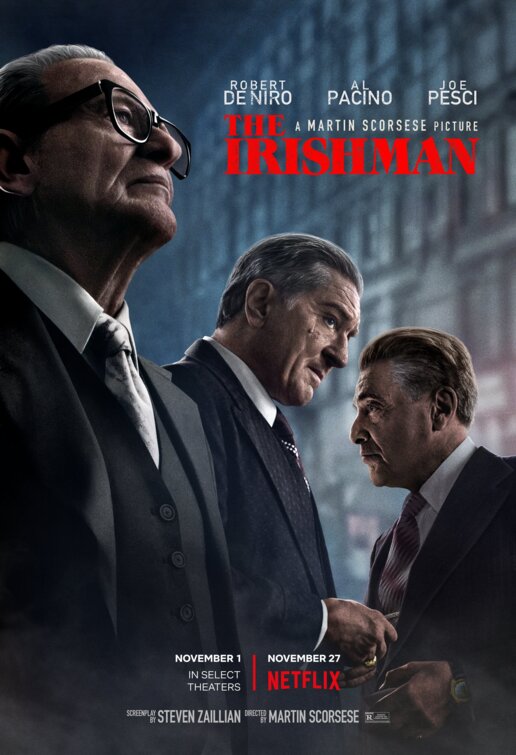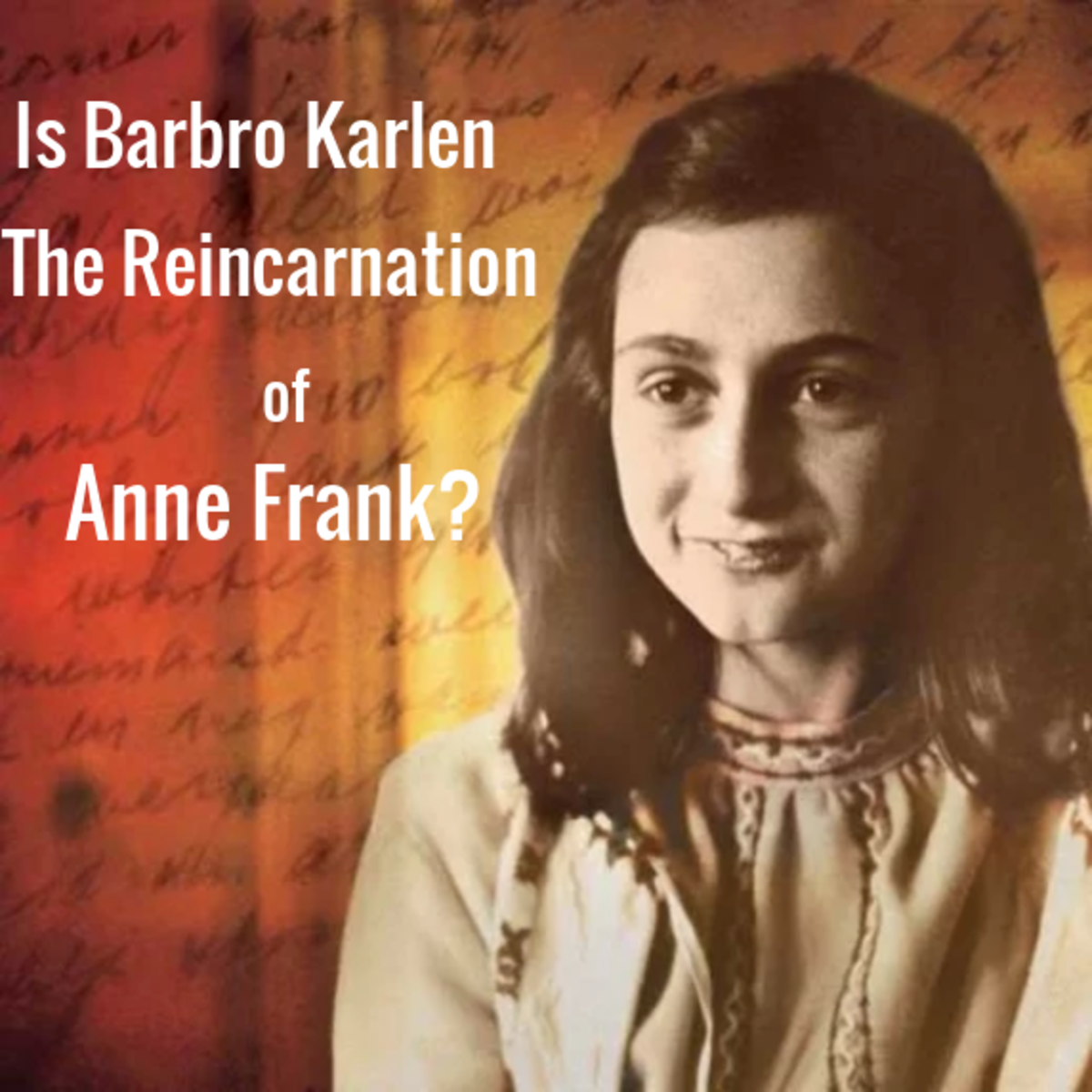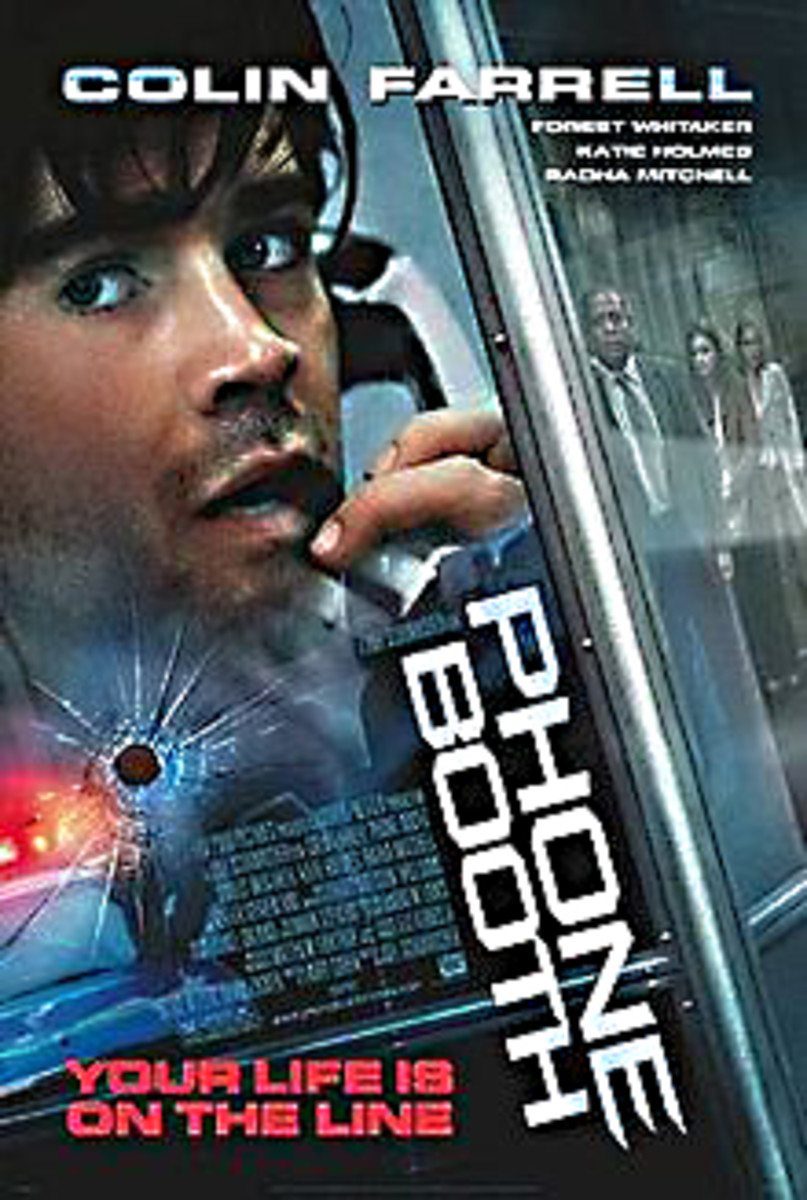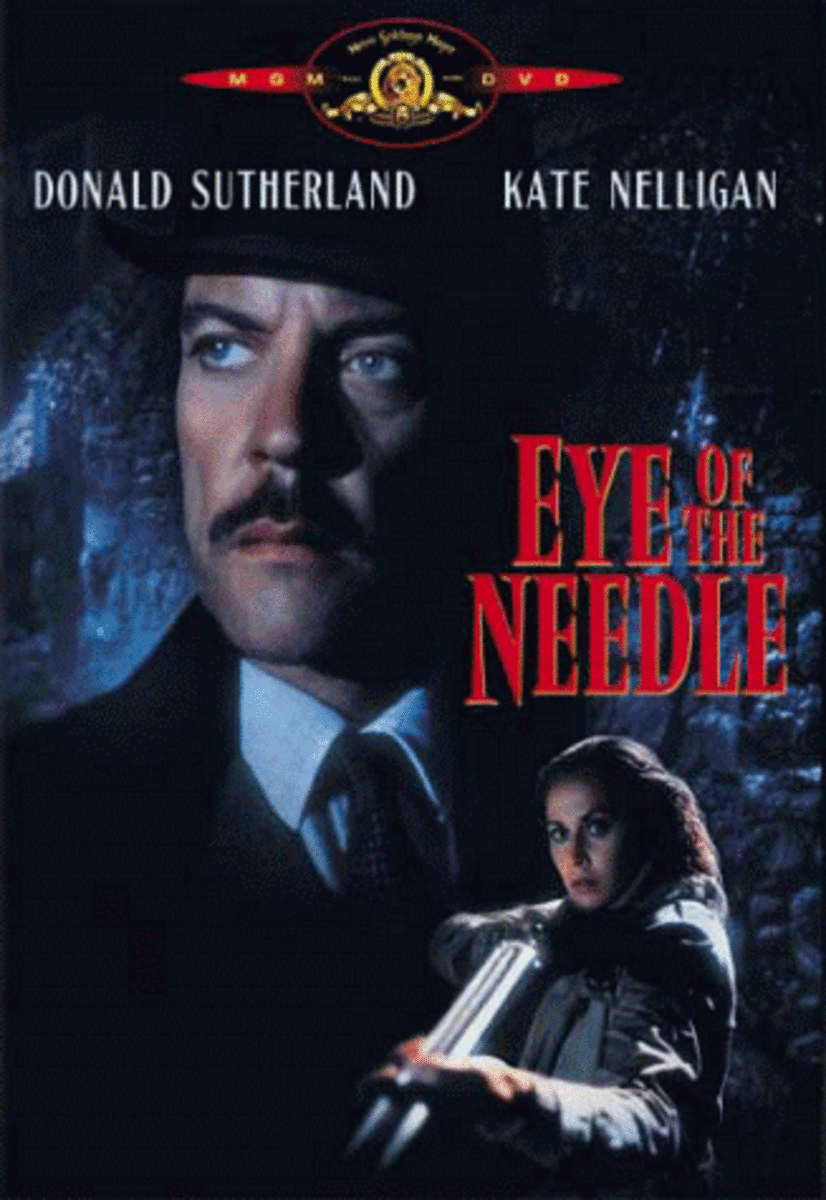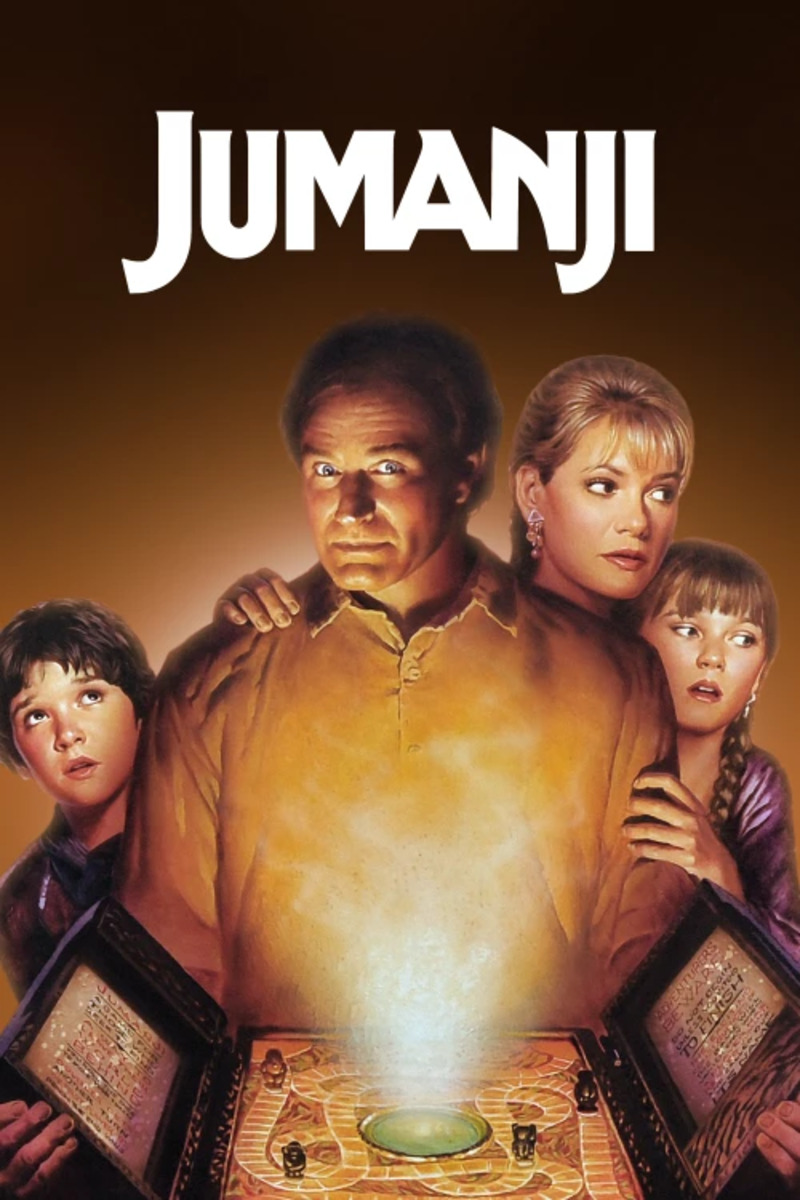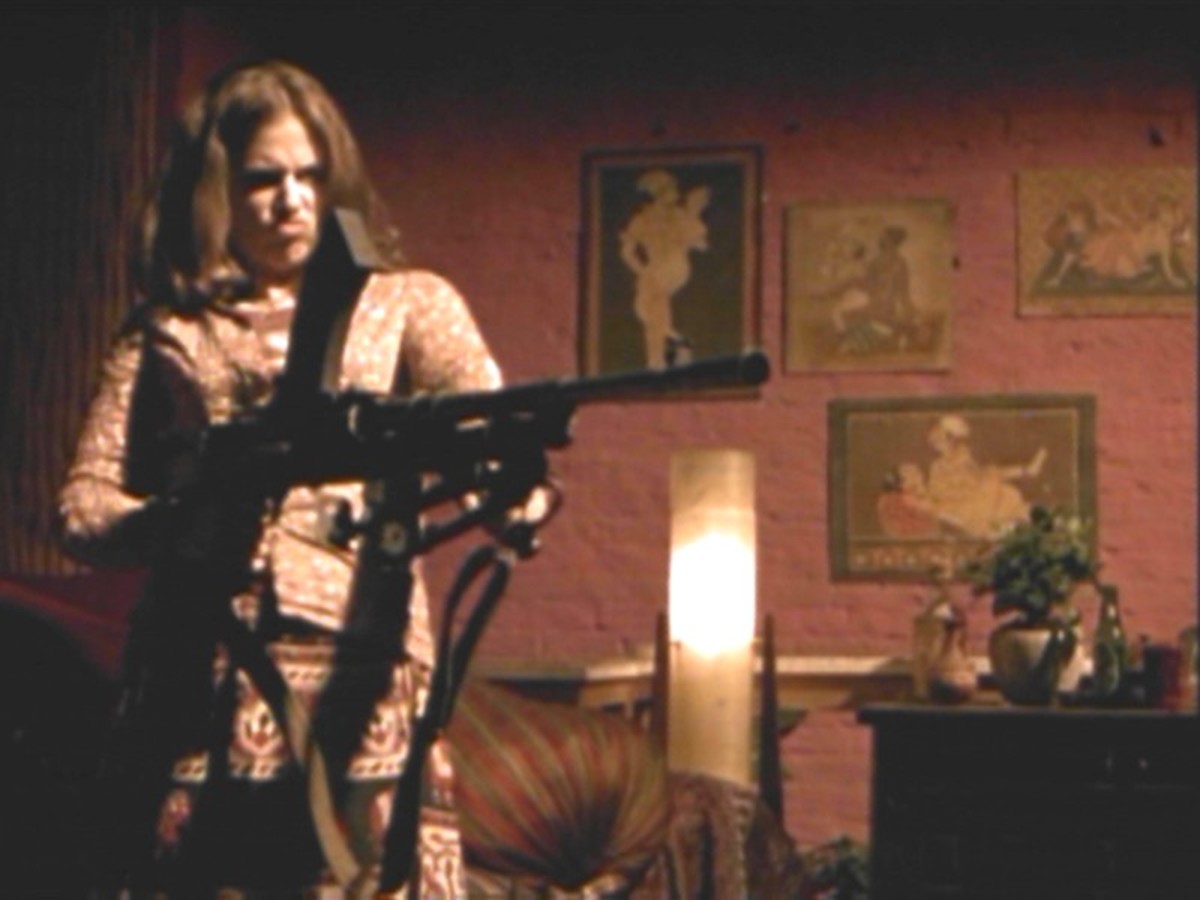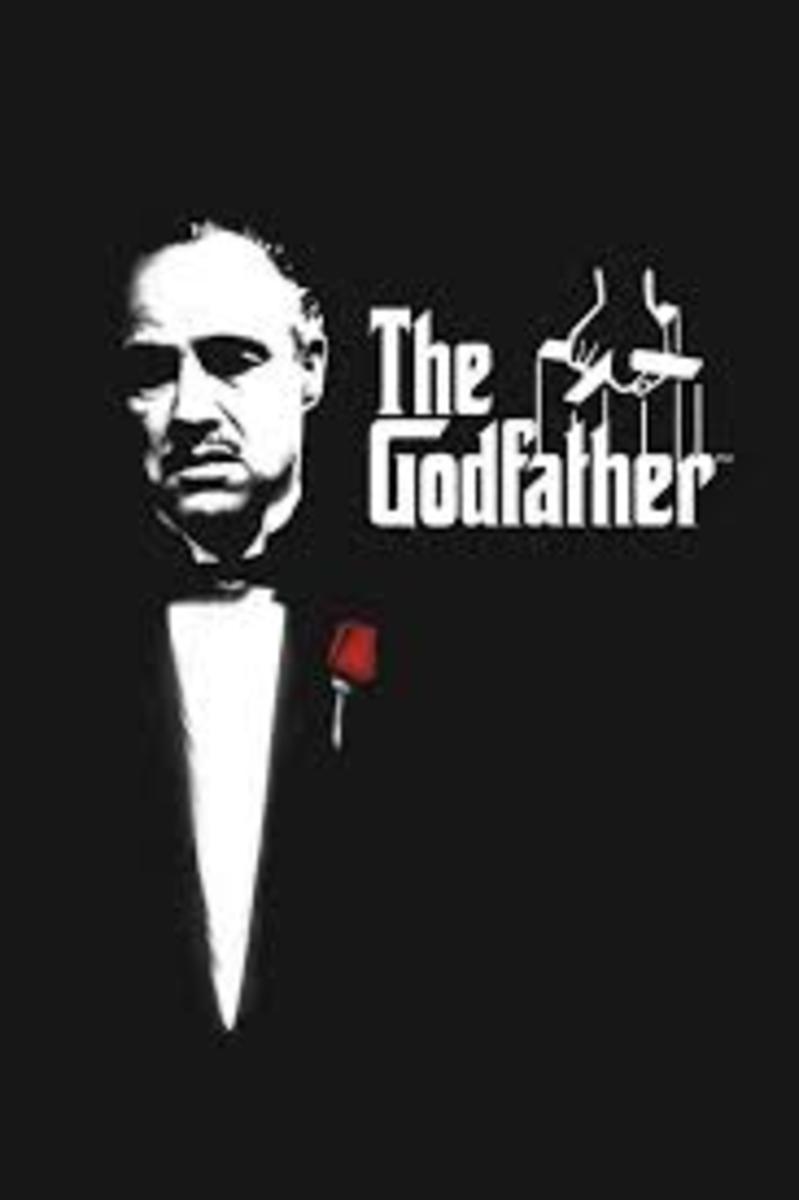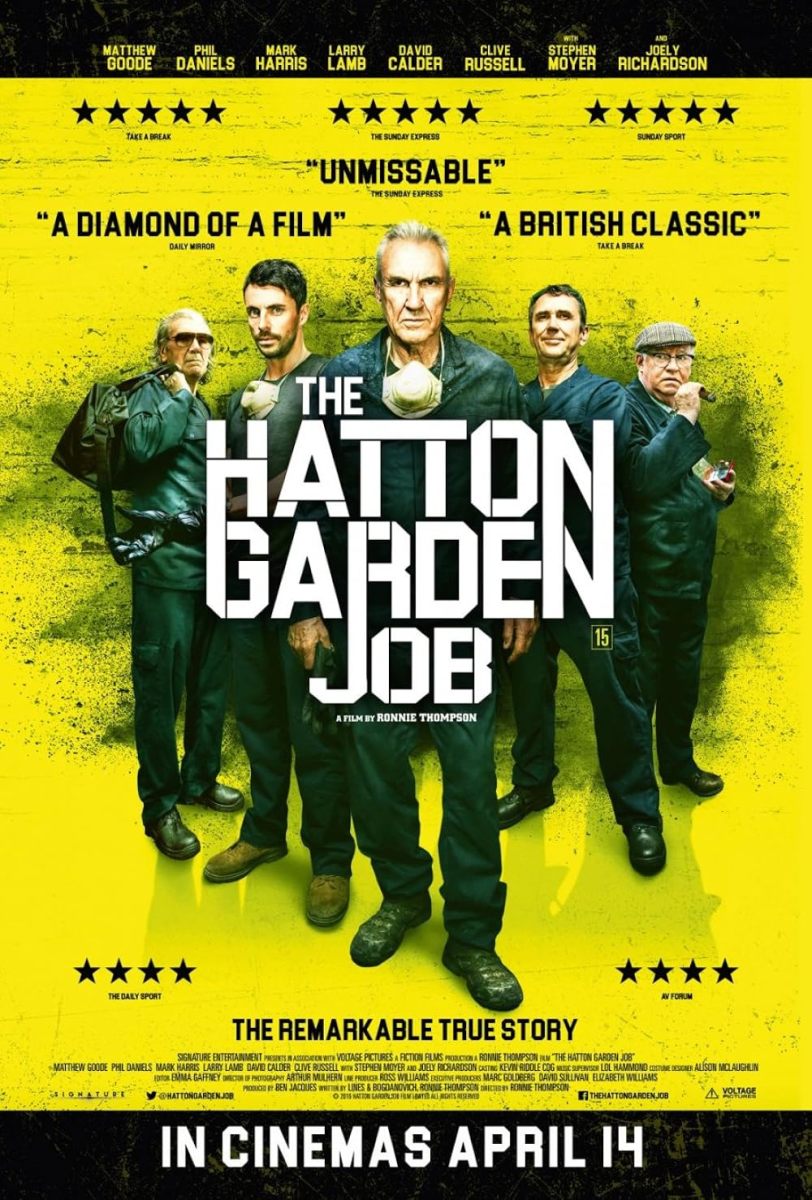Film Review: The Irishman
Friendship and loyalty to your boss. Those are two important things to deal with in life. What happened when you had to choose between the two? That was the dilemma for Frank Sheeran in Director Martin Scorsese's new film The Irishman.
The story followed began with Sheeran (Robert De Niro) in 1950s Philadelphia as a meat truck driver when he first crossed paths with mob boss Russell Bufalino (Joe Pesci) on a delivery run. They ended up running into each other again in a restaurant after Russell's cousin Bill (Ray Romano) helped him on a legal matter. A friendship between Russell and Frank has been struck. Russell becomes Frank's boss and mentor as he taught Frank how to navigate his way through the mob. Through Russell, Frank developed an initially working relationship only with Teamsters' president Jimmy Hoffa (Al Pacino). Frank was Hoffa's bodyguard who provided him protection and advice at the same time. They grew into a strong friendship as time went on, but Hoffa's short prison sentence and eagerness to return to his job with the Teamsters has caused some trouble. Frank's mob associates are getting nervous about Hoffa's behavior and considered him a loose cannon. Russell wanted to know if Frank was loyal to him or Hoffa. He made Frank choose which side he was on, and it was going to cost him one way or other.
In terms of dilemmas, it was the age old story of loyalty versus professional obligation. De Niro's Frank was a man conditioned to follow orders from his days in the war to working for Russell. With anyone familiar with the news of Hoffa's infamous disappearance, they already know what Frank's choice was. De Niro gave a solid performance as a man conflicted between obligation and loyalty to those he cared about. His relationship with his daughter Peggy (Anna Paquin) was ruined forever by his choice. When he had to choose between his boss and his friend, viewers could see the look of anguish as he laid in bed wondering he should do, but he chose to stay the course. Pesci brought a multi-layered performance that delivered the right amount of intensity and malice without going over the top. In a surprisingly supporting role, Pacino wasn't in the movie as much as expected as the flashy ever so colorful Hoffa. He was literally the spark that lit the match in his scenes, while De Niro was the glue that held everything together.
The chemistry between the three leads was undeniable due to their individual rapports with De Niro. Understandably, this was De Niro's fourth Scorsese film with Pesci and in that time developed a long established dynamic. With Pacino, De Niro always played the calm one while Pacino's Hoffa went off the rails like the real life one supposedly did as well. It's just a shame that the film didn't allow Harvey Keitel and Paquin to have more scenes in it; instead of what amounted to glorified cameos. Sure, it wasn't their movie, but Paquin could have had one scene where her character gave her father a piece of her mind.
Director Martin Scorsese recently discussed in an interview about the Marvel films being too much like theme parks. To summarize, there had a lot more flash and not enough substance behind them. In a way, even his latest film was like a theme park of sorts. He had to use a lot of digital efforts to make his actors look younger in flashbacks scenes. Viewers can tell when they initially see De Niro as a much younger Frank and in Pacino's early scenes when he first arrived on the scene. After about almost two hours in, both actors looked a little more like their natural selves. It's understandable why Scorsese wanted to go that costly route instead of hiring younger actors because when you have De Niro in a leading role he tended to garner enough attention. He also in a way established his own set of Avengers type of movie as a rogue's gallery of real life mobsters came and went as Frank got older. There were so many mobsters that came across the screen that it was hard to remember who all of them were.
As a whole, the movie provided a dynamic history of the mob and the cast's possible last chance to work together again. The running time lagged a little bit, especially in the last 30 minutes of the film where Frank was the sole focus. That part can be simply explained as that the past and the old ways of doing things was finished. No one was left around but him to continue on about those days. Scorsese would've been wiser to trim the last 15 minutes or so to speed things along. His conclusion was also a little on the flat side as well. When viewers get to the end, they will wonder if that was truly it, or if their cable went out; until the end credits started rolling.
Overall, Scorsese provided an interesting story with a strong cast of characters. He was meant to tell stories about mobsters, not Marvel characters, which he'll thankfully never do.
Grade: 4 out of 5 Stars
The Irishman is currently on Netflix as of November 27th for streaming. Running time 209 minutes and is Rated R.
Score Scale:
1 Star (Run, Don't Walk from the theatre.)
2 Stars (Okay fare, but it had a lot of flaws)
3 Stars (Decent enough to watch at home)
4 Stars (Near Perfect, but a few minor glitches)
5 Stars (The Gold Standard)
